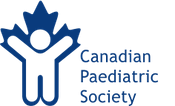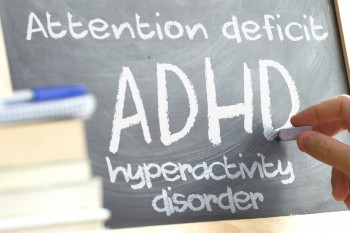When your child has ADHD: Coping during a Pandemic
Posted on April 3, 2020 by the Canadian Paediatric Society | Permalink
Topic(s): Public education
By Dr. Daniel Gorman, Psychiatrist, Hospital for Sick Children
Coping with attention deficit hyperactivity disorder (ADHD) in the middle of a pandemic isn’t easy. While ADHD has its challenges at the best of times, fortunately there are basic lifestyle changes and well-studied treatments that usually help. The main treatments for ADHD are behavioural strategies and medication. However, when kids are out of school and spend most of their time at home, behavioural strategies can fall by the wayside and parents may have questions about the medication their kids take, including whether they should still be taking it at all.
Here are some tips to help manage ADHD when kids can’t even go to the park to burn off energy.
- Your grandmother was right: Sleep, diet, and exercise really are important. This is true for everyone, but it’s especially true for kids with ADHD. When they don’t get enough sleep, children with ADHD can be irritable and act out more the next day. Junk food, with all its artificial additives, can make them more hyperactive. And physical activity is as good for their minds as it is for their bodies. So do your best to help your child have a regular bedtime, a balanced diet, and opportunities for physical activity.
- Establish routines, but don’t be too rigid about them. Kids with ADHD benefit from the right balance of structure and flexibility. With too little structure, their behaviour can escalate or they can spend endless hours in front of a screen (more on that below). On the other hand, structure that is too rigid can lead to conflicts and kids feeling bad about themselves for impulsively breaking rules. Parents are in the best position to find the right balance for their child—trust yourself.
- A few behavioural strategies can go a long way. Some behavioural strategies for ADHD include simplifying and repeating instructions, breaking down complicated tasks into small steps, and using reward systems—for example, sticker charts for younger kids and “token economies” for older ones. The key is to pick just a few behavioural strategies that are well suited to your child and use them consistently. Also remember that the most powerful reward isn’t a sticker or toy, but quality time spent with a parent.
- More screen time than usual makes sense these days, but try to make it social. Kids with ADHD tend to spend more time on screens than other kids, and this can cause problems. Right now, though, it’s important for all of us to keep socially connected while we physically distance ourselves, and online communication is great for this. School-aged children and teens may also need to be online for a few hours a day for school work and related activities. In this extraordinary time, it’s more important to focus on what kids are doing online, as opposed to how much time they are spending. Be sure that most of their screen time involves either learning or maintaining social connections with friends and family, and balance the screen time with offline activities.
- What to do about your child’s ADHD medication depends on your child and the medication. Decisions about adjusting your child’s ADHD medication should always be made in consultation with their physician, who may still be available by phone or videoconference. In general, though, certain ADHD medications, known as “stimulants,” can be skipped on days when you feel your child doesn’t need to be on medication, whereas other ADHD medications should be taken every day. If your child takes a stimulant, the question to ask yourself is whether it provides meaningful improvement even when your child is at home instead of at school or in their usual extracurricular activities. If the answer is “no” or “sometimes,” then talk to their physician about possibly not giving the stimulant (or giving a lower dose) on days when it is less necessary, especially if it causes side effects such as low appetite or sleep problems.
- Remember what’s special about your child. Coping with a pandemic can put things in perspective. So while it’s normal to feel frustrated when your child takes an hour to get dressed or impulsively hits their sibling, remind yourself about all the things you love about them—their spark, their personality, their sense of humour.
Parenting a child with ADHD is a journey, and the approaches you take – whether they involve behavioural strategies, medication, or a combination of the two – need to be adjusted as your child develops and their circumstances change. Living through COVID-19 is an extreme change in circumstances that may call for greater adjustments than usual, but the same basic principles still apply.
Dr. Daniel Gorman is a staff psychiatrist at SickKids and the Director of Postgraduate Education in the Division of Child and Youth Mental Health, University of Toronto.
Copyright
The Canadian Paediatric Society holds copyright on all information we publish on this blog. For complete details, read our Copyright Policy.
Disclaimer
The information on this blog should not be used as a substitute for medical care and advice. The views of blog writers do not necessarily represent the views of the Canadian Paediatric Society.
Last updated: Apr 20, 2020


